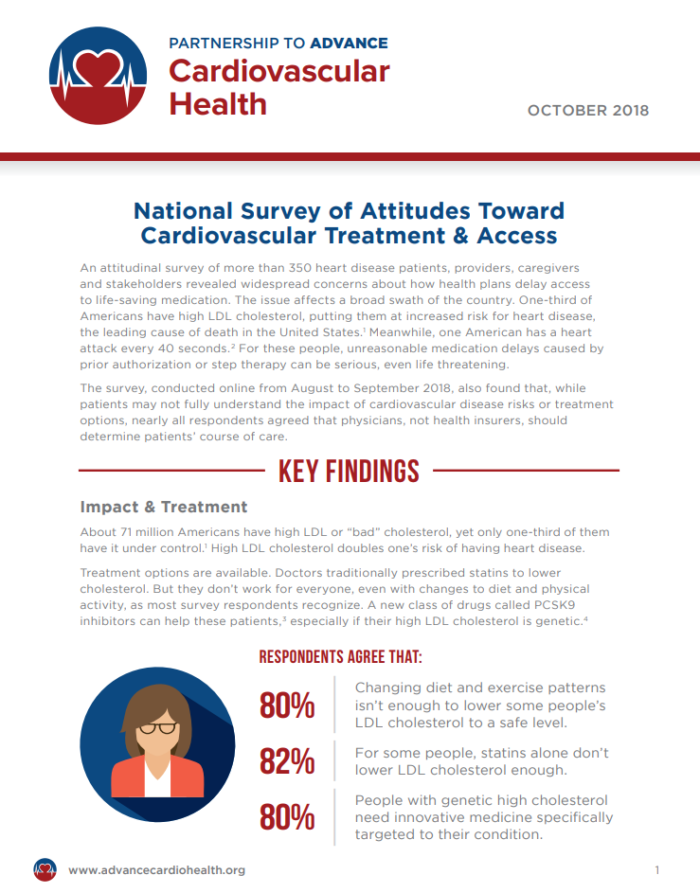Poll: Health Plan Delays are “Unreasonable,” Dangerous for Heart Patients
October 11, 2018
Heart disease patients, providers, caregivers and stakeholders agree: Health plan policies that delay access to life-saving medication are unacceptable.
The Partnership to Advance Cardiovascular Health’s recent survey revealed strong opinions about the danger of prior authorization and the risk associated with step therapy. The 350 respondents agreed that:
- Health plans’ prior authorizations dangerously delay patients’ medicine that could prevent a heart attack or stroke (84%)
- It is unreasonable for health plans to use prior authorization to delay high-risk patients’ access to medicine that could prevent a heart attack or stroke (88%)
- Step therapy, or “fail first,” risks heart patients’ health by making them fail on a cheaper drug before getting the medicine their physician prescribed (74%).
Respondents overwhelmingly agreed that physicians, not health insurers, should decide which prescription medications their patients need (97%).
In addition to sharing their opinions about medication access, those polled responded to questions about treatment options. Their answers underscore why they perceive access barriers as particularly dangerous. Survey participants recognized that changing diet and exercise patterns isn’t enough to lower some people’s LDL cholesterol to a safe level (80%). This is especially important as high LDL cholesterol doubles one’s risk of having heart disease.
On the issue of treatment, respondents also reported that:
- For some people, statins alone don’t lower LDL cholesterol enough (82%)
- People with genetic high cholesterol need innovative medicine specifically targeted to their condition (80%).
Just as participants recognize the value of condition-specific treatment, they agree that health insurers take a one-size-fits-all approach to cardiovascular health (79%).
The Partnership to Advance Cardiovascular Health previously released national and state-specific report cards highlighting the extent to which health plans reject claims for innovative cholesterol-lowering medication known as PCSK9 inhibitors.
To learn more, read the Partnership to Advance Cardiovascular Health’s full survey results.
Tags: Cardiovascular, Prior AuthorizationCategorized in: Blog


